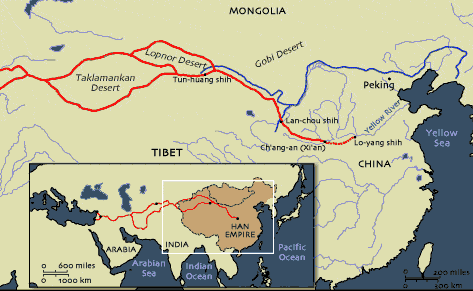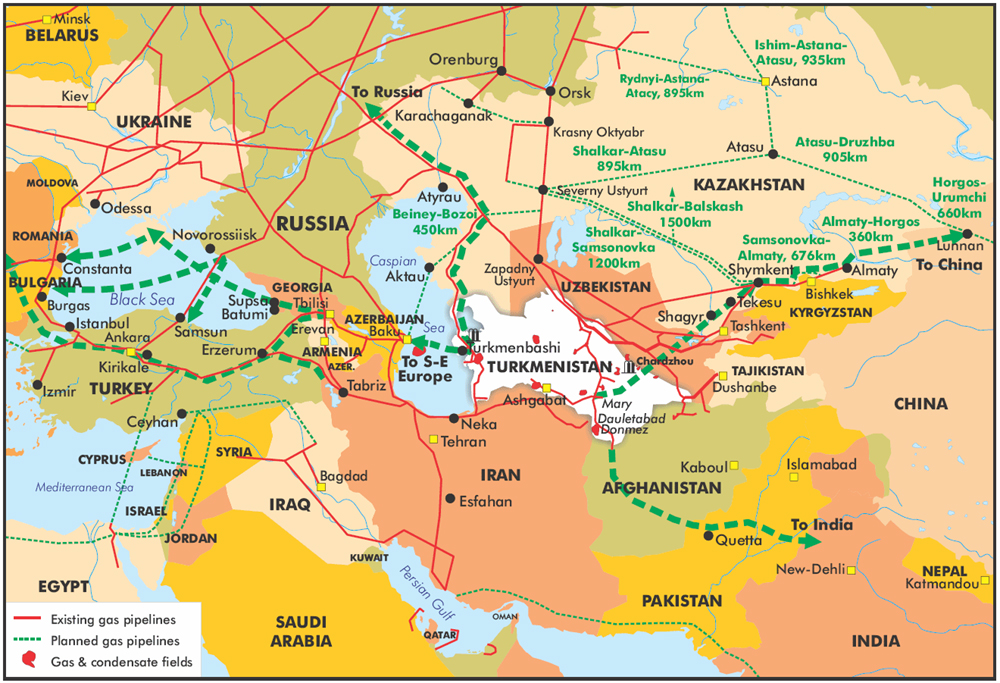 What? Nobody got a gun?
What? Nobody got a gun?
Sometimes Foreign Policy gets as hyperbolically goofy as Foreign Affairs is uniformly dull.
Here is a wonderfully over-the-top piece of geopolitical hyping from Alexandros Petersen entitled, "Did China Just Win the Caspian Gas War? While Washington and Moscow had their eyes on each other, Beijing stole the prize." It was top of the pile in the WPR Media Roundup for the day (with shame to WPR for promoting such excess).
I will tell you that I hate it when war terminology is applied to international business; I simply find it excessive, misplaced, and designed for nonsensical fear-mongering.
Of course, you can blame much of this on the editors at FP, who juice up the piece with the title, suggesting--yet again--how we've lost another "war"!!!!!!
Except the author notes that America is sharing its revolutionary shale gas technology with China, so maybe both of these two major consumers won't be caring all that much about "gas wars" (a truly doofus term from professionals who should avoid such nonsense) in distant locations down the road.
As for China's "stolen prize," Petersen admits near the end that maybe China will regret relying on unstable regions for energy.
Ja, just maybe.
Better to read Richard Weitz's sensible, hyperbole-free WPR piece on the Eurasian security organizations, to wit the opening lines:
Perhaps the most surprising feature of the protracted crisis in Kyrgyzstan is what has not happened: Neither of Eurasia's two preeminent regional security institutions, the Collective Security Treaty Organization (CSTO) and the Shanghai Cooperation Organization (SCO), have coordinated a military intervention in that country.
The mass protests, deaths, and refugee crisis involving perhaps 1 million people has represented one of the most acute challenges to Eurasian stability in the history of either organization, both of which were founded almost a decade ago. In mid-June 2010, the Kyrgyz interim authorities even directly appealed for Russian military intervention on their behalf, but Moscow declined to act military -- either unilaterally or within the framework of either the CSTO or the SCO. Both organizations have offered primarily verbal support and limited humanitarian assistance to their beleaguered member state. Despite expectations, neither organization has yet become a modern version of the Warsaw Pact, using military and police power to keep its client regimes in power.
So given that reality, maybe FP should eschew all the bullshit "war" terminology in their headlines and analysis on resources and energy. It just comes off as embarrassing.
 Monday, August 1, 2011 at 10:33AM
Monday, August 1, 2011 at 10:33AM Despite the rush right now to declare important milestones or turning points in the fight against terrorism, the best handle we can get on the situation seems to be that al-Qaida is near dead, but its franchises have quite a bit of life in them. The implied situational uncertainty is to be expected following Osama Bin Laden's assassination, as he was our familiar "handle" on the issue for more than a decade. But although it is normal that we now seek a new, widely accepted paradigm, it is also misguided: In global terms we are, for lack of a better term, in a good place right now on terrorism, meaning we don't need to unduly demote or elevate it in our collective threat priorities. Instead, we need to recognize the "sine wave" we're riding right now and seek no profound rebalancing in our security capabilities -- other than to continue protecting the "small wars" assets that we spent the last decade redeveloping.

 Africa,
Africa,  Central Asia,
Central Asia,  China,
China,  Long War,
Long War,  Middle East,
Middle East,  US foreign policy,
US foreign policy,  terrorism | in
terrorism | in  WPR Column |
WPR Column |  Email Article |
Email Article |  Permalink |
Permalink |  Print Article
Print Article 





















